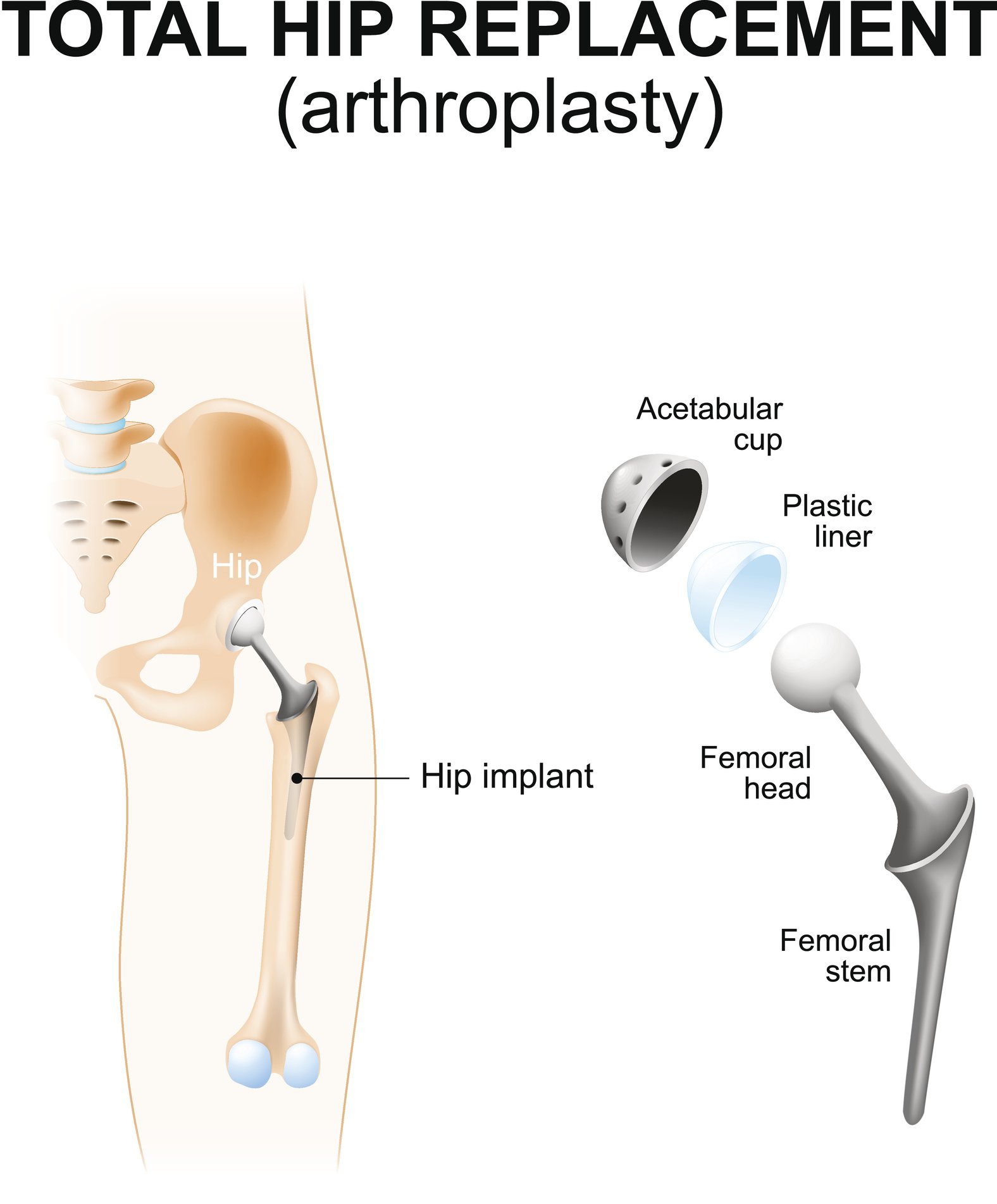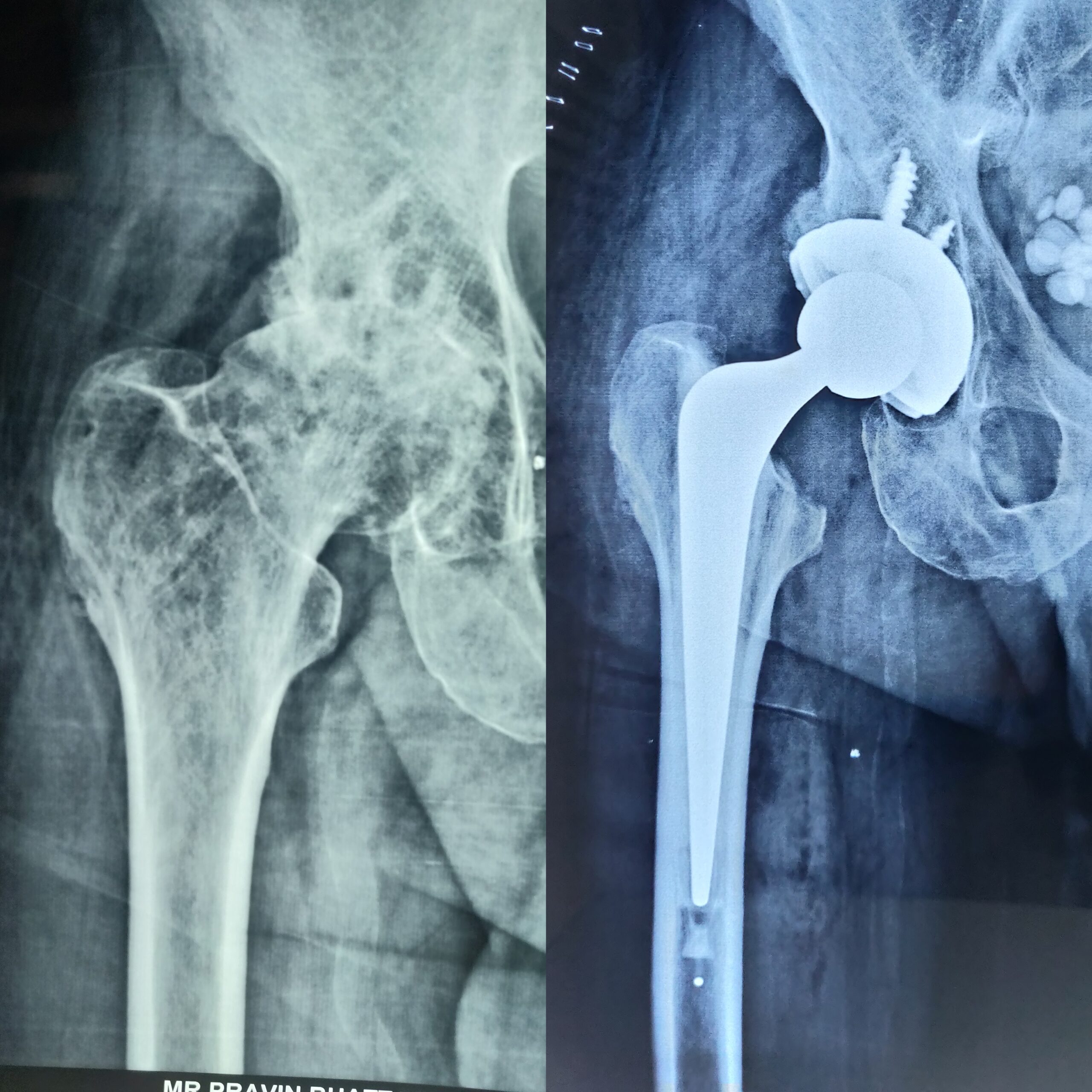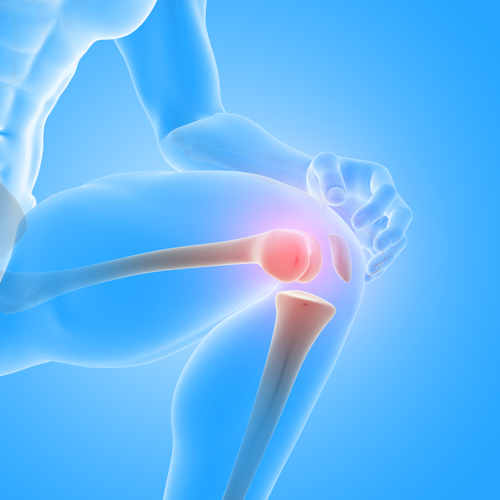Hip Replacement Surgery
 This is a surgical procedure in which the complete hip joint is replaced by an artificial joint (prosthesis). The THR surgery involves replacement of the Acetabulum with an artificial acetabular cup and replacement of the femoral head with an artificial metallic ball. Depending on the patient requirement the proper material acetabular cup will be selected by your orthopedic surgeon.
This is a surgical procedure in which the complete hip joint is replaced by an artificial joint (prosthesis). The THR surgery involves replacement of the Acetabulum with an artificial acetabular cup and replacement of the femoral head with an artificial metallic ball. Depending on the patient requirement the proper material acetabular cup will be selected by your orthopedic surgeon.
Most of the hip replacement surgeries last for an average of 20 years.
Hip replacement can be of two types
- Uncemented Total Hip Replacement – In this no artificial bone cement is used to fix the prosthesis its more anatomical, and allows the bone to properly ingrain the implants.
- Cemented Total Hip Replacement – In this artificial bone cement is used and it is used to hold the prosthesis in place. It allows earlier full weight bearing.
Do I Need Hip Replacement?
The decision to undergo a hip replacement has to be made between yourself, your family and your surgeon. Every case has to be assessed and your surgeon will evaluate the best option for you looking at the blood tests, x-rays and clinical correlation.
You might need a THR if
- Hip pain is restricting your daily activities
- There is constant hip pain throughout the day and also at rest
- Your hip joint has become stiff
- Medical treatment is not as effective to control the pain now.
The Surgery Day
 You shall be admitted to the hospital early in the morning of the surgery or one day previously, and you shall be evaluated by a member of the medial staff. Most hip replacement surgeries are done under a spinal epidural anesthesia, so you will be awake but wont be able to feel anything.
You shall be admitted to the hospital early in the morning of the surgery or one day previously, and you shall be evaluated by a member of the medial staff. Most hip replacement surgeries are done under a spinal epidural anesthesia, so you will be awake but wont be able to feel anything.
The surgery takes approximately 70-90 minutes, but you shall be in the Operation theatre for around 2-3 hours for preparation before the surgery and basic dressing after the surgery
Your surgeon shall remove all the damaged parts and tissues before sizing the remaining bone and replacing it with an artificial metal prosthesis with a plastic spacer for easy movements.
After the surgery you shall be moved to the recovery room for a couple of hours before being moved back to your room.
Recovery
- The first phase of your recovery will begin on the same day of the surgery in the evening, a physiotherapist shall come and start with some light exercises.
- While you recuperate in the hospital for a few days after the surgery (normally 3-4 days) you will be made to walk with complete support of the physiotherapy team.
- The success of your surgery depends on your recovery at home which is mainly how you follow your surgeon and physiotherapists advice and continue the few exercises given to you.
- It is important to remain mentally and physically active which will quicken your recovery.
- You shall also have to take care of your surgical wound which will be in its dressing.
What to expect after Surgery?
Hip replacement surgeries are one of the most successful surgeries performed. They can lead to nearly a 90 percent decrease in the pain a patient had before surgery. There is also a significant increase in the flexibility and range of motion of the patient and can comfortably walk and undertake normal daily activities along with light dancing, swimming and mild recreational activities. You shall be advised to avoid over exertion and contact sports.
Complications after the surgery
Hip replacement is a relatively safe surgery with very few chances of complications, but, as with all medical procedures there is a minimal risk of Deep Vein Thrombosis, Infection, Joint dislocation, stiffness or rarer still heart attack and stroke.
Treatments Offered

